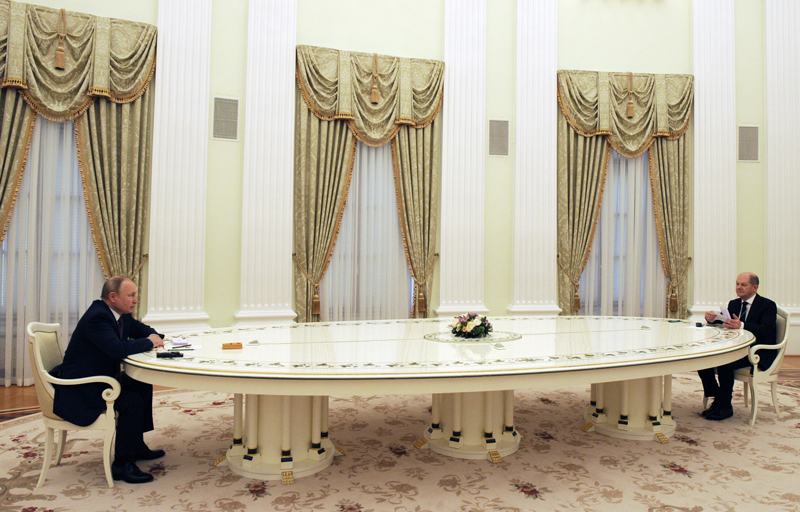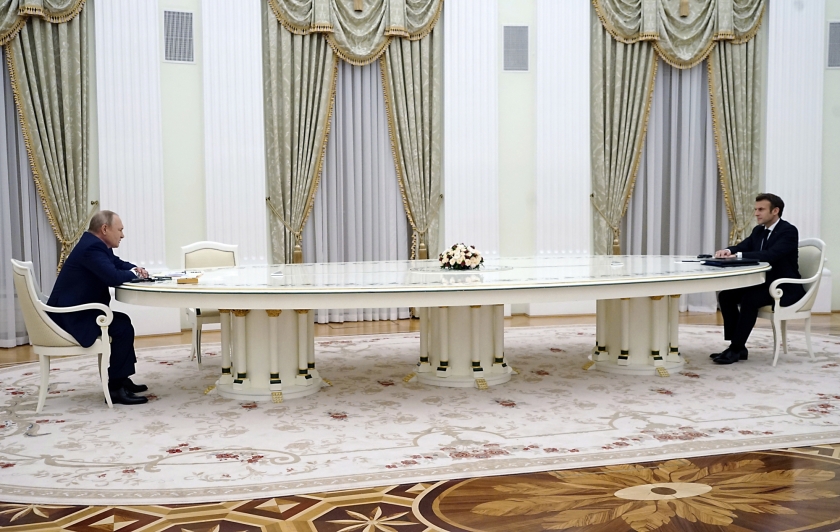If this is Europe…
The future Europe has spent three and a half years trying to avoid is no longer a distant threat—it is unfolding before our eyes. Yet little of substance has been done to prepare. We need neither Mario Draghi’s strategic brilliance nor Winston Churchill’s foresight to recognize the danger: this is an existential crisis not just for war-torn Ukraine, but for Europe itself.
Ukraine may not have met every bureaucratic EU requirement for joining the group—like capping plastic bottles—but its fight is Europe’s fight. Brussels must fast-track Ukraine’s accession now, because Ukraine is defending the soul of the continent: freedom, democracy, and the very survival of the West. If Ukraine falls, so too will Europe, its values, and the delusion—denounced by Draghi—that economic power alone can guarantee geopolitical security. That illusion will collapse, and with it, Europe’s economic might.
Yet even Donald Trump’s contempt for Europe and the transatlantic alliance has failed to jolt Brussels from its bureaucratic slumber. The EU moves at a glacial pace, as if peace were permanent and threats merely theoretical.
Extraordinary times demand extraordinary leadership. Instead, Europe is led by a man of modest stature presiding over the European Council at a moment that cries out for a globally respected, pan-European statesman—one who in fact exists, yet remains untapped.
Recall May 1940: when Neville Chamberlain resigned, his successor, Winston Churchill, did not hesitate to include his political rival, Clement Attlee, in a wartime coalition. Today’s EU mediocrities, however, would never turn to a figure like Mario Draghi. They cling to the illusion of stability, while Euro-funded NGOs lecture on human values and Russia’s war grinds on.
Where is the EU’s “whatever it takes” resolve? Why are €300 billion in frozen Russian assets left untouched, when they could arm Ukraine and rebuild its shattered cities? Why are sanctions so feeble that Turkey systematically undermines them? Why has no Pan-European War Council—including Britain—been formed to coordinate a unified defense?
For two decades, the idea of a European Constitution (rejected in 2005) has gathered dust. No serious effort has been made toward political union in the Eurozone, let alone a federal Europe—even as authoritarian regimes grow bolder. Churchill’s 1946 vision of a “United States of Europe” died with him. Now, as tyranny rises again, Europe remains paralyzed by its own inertia.
Europe must erect a new Iron Curtain—not of oppression, but of defense. Call it the Churchill Line, in honor of the man who first warned of the Soviet Iron Curtain stretching from Stettin to Trieste, isolating the capitals of Central and Eastern Europe except for Athens. Today, the free nations from Scandinavia to the Black Sea—Norway, Sweden, Finland, the Baltics, Poland, Ukraine, Moldova, Romania, Bulgaria, and Greece—must unite to build this barrier by 2026, eighty years after the original descended.
This Iron Curtain of Freedom should stretch from Finnish Lapland to the Bulgarian-Turkish border all the way down to the southernmost point of Greece. The Baltic states, already fortifying their frontiers, must not stand alone. Every European nation, including the UK, should contribute to this defensive bulwark.
Consider February 2022: Emmanuel Macron and Olaf Scholz each sat at Putin’s infamous long table—Macron on the 7th, Scholz on the 15th. Their failure to deter the Kremlin was no surprise. Angela Merkel’s legacy of energy dependence on Russia had already ensured Europe’s vulnerability. As Helmut Kohl once lamented, Merkel had “destroyed my Europe.” By blocking Ukraine’s NATO bid in 2008, Merkel and Sarkozy paved the way for Putin’s invasion. When the tyrant in the Kremlin sized up Macron and Scholz, he saw weakness—and struck.
Yet Ukraine resisted. Zelensky’s courage and the resolve of the UK, the US, and most of Europe (save Hungary) caught Putin off guard. Still, after three and a half years of war—despite Russia’s oil smuggling through Turkey—Europe now flirts with another disastrous misstep: trusting Recep Tayyip Erdoğan, a host to Hamas and the Muslim Brotherhood, to guard its borders. Erdoğan is the problem, not the solution.
If the EU wants a European Army, its core already exists: the battle-hardened Ukrainian military. Ukraine’s forces are the foundation of Europe’s security, and its defense industry—a leader in drone technology—should be the continent’s arsenal. Yet instead of partnering with Kyiv, Europe courts Erdoğan’s semi-dictatorship, buying Turkish drones while ignoring Ukraine’s innovations. Those who refuse to act will learn too late that economic power is no Maginot Line against the storms ahead.
Europe has enjoyed 80 years of prosperity, lulling itself into believing it can charm Donald Trump into preserving the status quo—at any cost. But wishful thinking is no strategy. The EU leadership would do well to recall Chamberlain’s bitter words after Munich: “Peace for our time.” When the next crisis comes—and Russian missiles strike an EU capital—they will wake in panic, scrambling for leadership. By then, the only seasoned candidate may be Volodymyr Zelensky.
Macron calls Putin a “predatory monster at our doorstep,” yet instead of arming Ukraine with Rafale jets to strike that monster, he panders to the Islamo-Left and far-right factions who appease tyrants. Meanwhile, Russia’s aggression against the West continues unabated and more brazen: the GPS system of European Commission President’s plane is jammed, Russian drones violate the airspace of Poland, Romania, Estonia, and Latvia and Russian airstrikes hit a U.S. factory in Western Ukraine.
Hungary’s Viktor Orbán has long been the EU’s excuse for inaction on Ukraine’s accession. Yet when there is political will, the EU has tools to enforce it: in 1991, Helmut Kohl pressured Jörg Haider to resign as governor of Carinthia; in 2000, sanctions toppled Haider’s coalition government. The EU has tolerated Orbán’s putinist post-fascism for too long. The charade must end.
Manolis Vasilakis is the Editor-in-Chief of the Athens Review of Books.

German Chancellor Olaf Scholz meets with Putin at the Kremlin on February 15, 2022, for the same reason. This was Putin's final test before the invasion. © AMNA / EPA / Kremlin Pool / Sputnik



